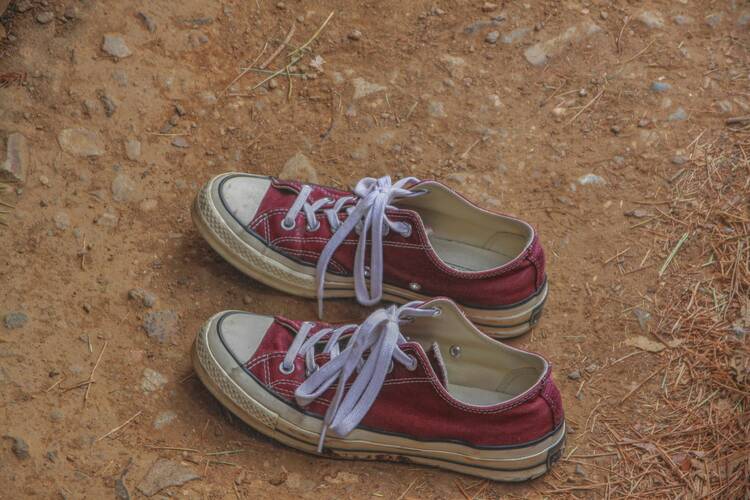A Reflection for Wednesday of the Fifteenth Week in Ordinary Time
Find today’s readings here.
Although you have hidden these things
from the wise and the learned
you have revealed them to the childlike. (Matthew 11:25)
I’ve been thinking a lot lately about what it means that Jesus says, “My yoke is easy and my burden light.” Although today’s readings do not include that line, they resonate with it: The first reading is the story of Moses approaching the burning bush, and the Gospel includes the quote above. The message I find echoed in all of them is a call to approach God with humility—and the surprising idea that God approaches us with humility, too.
The first part, I think, is evident from the text: When Moses approaches the burning bush, God tells him to take off his shoes, for he is standing on holy ground. Removing our shoes is a sign of respect; in many cultures, it is standard practice to remove your shoes upon entering someone else’s home, and likewise when entering temples or mosques. The practice is less common in much of western Europe and the United States where one might balk at the requirement (one need only think of the grumbling in TSA lines); in some of these places, it would be considered insulting to ask a guest to remove his or her shoes. Why? Because removing our shoes is humbling: We expose our socks or bare feet that are normally hidden, and we implicitly acknowledge that our shoes are too dirty for our host’s home. And in cultures where cleanliness is (incorrectly!) conflated with morality, that can feel like admitting our host is superior to us.
In the Gospel today, we are exhorted to approach God like little children, while those who are “wise and learned” will not understand God’s ways. It is a message reminiscent of the Magnificat, which is the responsorial psalm for today’s Optional Memorial of Our Lady of Mt. Carmel: God casts down the mighty, raises the lowly, fills the hungry and sends the rich away.
Of course, approaching the creator of the universe with humility seems self-evident: “What is man that you are mindful of him?” the psalmist famously asks (Psalm 8). What is jarring, shocking even, is that God approaches us with the same humility. Unlike the gods portrayed in famous pagan myths, our God does not curse us when we fail to meet some ever-increasing demands he imposes: rather, he reaches out to us with repeated invitations and “never tires of forgiving” when we turn away, as Pope Francis often reminded us. This is why Jesus can say that his “yoke is easy” and his “burden light.”
This is a God who does not come to us in earthquakes or as a powerful ruler, but in quiet, almost unnoticed miracles; the kinds of things that a child would notice while an adult might ignore them: a newborn with his mother in a stable; a still, small voice; a bush on fire that only the person who watches it for a while will discover is not consumed.
In other words, God takes off his shoes to approach us. Do we do the same for him?








